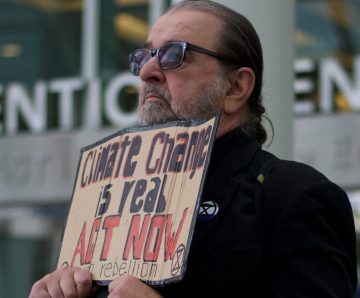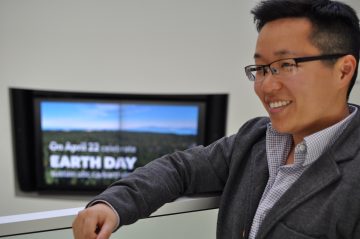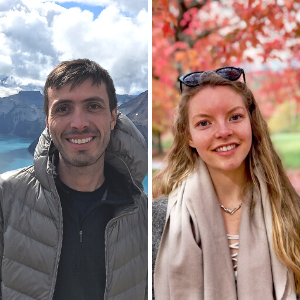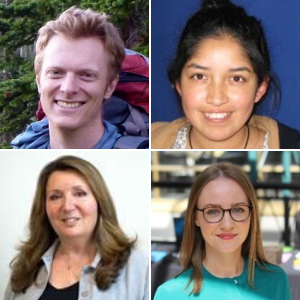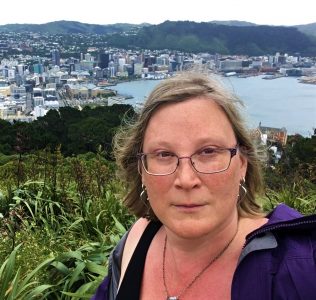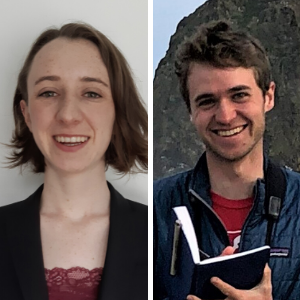March 12, 2020: IRES Student Seminar with Helina Jolly
Gidiku Vapathu is an ethnographic research documentary about the Indigenous Kattunayakan (Nayaka) people of India. In Kattunyakan language, ‘Gidiku Vapathu’ means ‘Going to the forest’ (Gidiku – Forest; Vapathu – Going). A term commonly used by the community members to invite their friends and family as they start their daily walk into the forest.
March 5, 2020: IRES Professional Development Seminar with Tom Hetherington
People from all walks to life are struggling to cope with the emotional impact of the climate crisis. In this Professional Development Seminar, Tom will share strategies and supports from the “From Climate Grief to Acton (FCGA)” group for dealing with feelings associated with eco-grief and/or climate anxiety, including non-judgmental personal storytelling, building communities of mutual support, mindfulness exercises, and self-empowering action planning.
February 27, 2020: IRES Faculty Seminar with Jiaying Zhao
A growing body of research suggests that direct cash transfers are an effective solution to reduce global poverty, although most evidence comes from developing countries. The current study is the first randomized control trial in developed countries examining the impact of unconditional cash transfers on homeless individuals. Specifically, we distributed a one-time unconditional cash grant of $7,500 to each of 50 homeless individuals in Vancouver, with another group as controls. Our preliminary data show that the cash transfer results in significant improvements in housing stability, food security, savings, and cognitive function, with no increases in spending on temptation goods. Based on a cost-benefit analysis, the cash transfer results in net savings per person per month via reduced shelter use. Our preliminary findings suggest that unconditional cash transfers can be an effective and cost-effective solution to reduce homelessness in developed countries.
February 20, 2020: No Seminar Due to Reading Week
There will be no seminar on Thursday, February 20 due to Reading Break (Feb 18-21).
February 13, 2020: IRES Student Seminar with Juan Diego Martinez and Andrea Byfuglien
February 13, 2020: IRES Student Seminar with Juan Diego Martinez and Andrea Byfuglien
February 6, 2020: IRES Faculty Seminar with Mark Harris
On December 1, 2019, for the first time in history, Indigenous communities from across Australia danced in unison at the same time, dancing for Country, for ancestors and for healing. For the first time in over 150 years, Corroboree took place on Gundungurra Country (in south-eastern New South Wales). In this presentation I want to juxtapose this moment with the recent history of moves to achieve Reconciliation in Australia that began with the establishment of a Council for Aboriginal Reconciliation in 1991 and was followed by the attempts to comprehend Australia’s history of forced removal of Aboriginal children from the 1900s through to the 1970s (dubbed the Stolen Generations). This presentation will consider this historical context and the question of whether Reconciliation is possible in a settler-colonial society such as Australia and what lessons (if any) might be drawn for non-Indigenous peoples seeking to achieve Reconciliation.
January 30, 2020: IRES Professional Development Seminar with Steve Chignell, Erika Luna Perez, Leonora Crema, and Stephanie Savage
Scholarly publishing is in crisis. A handful of corporations own most of the world’s top academic journals, making as much as 37% profit from library subscriptions, paywalls, and the volunteered time of researchers. Publishers have also found new ways of monetizing open access, as scholars seeking to make their results open to the public pay thousands of dollars for each paper published without a paywall. Meanwhile, companies have developed a suite of metrics that are now being sold to universities as a way to ‘track impact’ and boost rankings. This increases the pressure to publish, spurring the proliferation of hundreds of new journals of varying quality. This seminar will describe how we got here and how you, as scholars and authors, can navigate this complex system. It will then open into a discussion exploring potential alternatives and challenges to realizing them.
January 23, 2020: IRES Faculty Seminar with Lenore Newman
The global environmental impact of rising consumption of animal products presents serious environmental challenges. One alternative is cellular agriculture: the production of animal products in-vitro. Such “clean meat” technologies promise improvements in environmental metrics, animal welfare, and human health. This discussion highlights research into the potential impact of cellular agriculture on the dairy industry; though cellular dairy could offer significant ecological benefits, these could be countered by intensification of agricultural activity in equatorial regions for the production of feedstocks for cellular agriculture. Using the concept of telecoupling, an umbrella concept that refers to socioeconomic and environmental interactions over distances, this talk examines the policy landscape needed to prevent unequal distribution of the costs and benefits of alternatives to animal products.
January 16, 2020: IRES Student Seminar with Bronwyn McIlroy-Young and Harold Eyster
January 16, 2020: IRES Student Seminar with Bronwyn McIlroy-Young and Harold Eyster
January 9, 2020: IRES Faculty Seminar with Rashid Sumaila
The World Trade Organization (WTO) was tasked with eliminating overfishing fisheries subsidies way back in 2001. This is yet to be accomplished. To support the ongoing WTO negotiations, the Fisheries Economics Research Unit at UBC has been providing fisheries subsidies data and analysis to the global community since the early 2000s. Dr. Rashid Sumaila will present his latest findings and describe the state of play in the struggle to discipline harmful subsidies.

